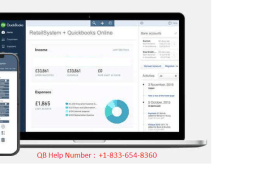Introduction
Are you tired of feeling weighed down by your debt? Do you want to improve your credit score but don’t know where to start? Look no further! In this blog post, we’ll be discussing effective and practical strategies for reducing your financial burden and boosting your credit score. Whether you’re drowning in student loans or struggling with high-interest credit card debt, our tips will help set you on the path towards a brighter financial future. So pour yourself a cup of coffee and let’s dive in!
What is Debt Relief?
Debt relief is the process of reducing or eliminating debt. There are a variety of methods available to help individuals and families reduce their debt, including debt consolidation, debt management, and debt settlement. While each method has its own advantages and disadvantages, all three can be effective ways to get out of debt.
Debt consolidation involves taking out a new loan to pay off multiple debts. This can be a good option if you can qualify for a lower interest rate than you are currently paying on your debts. It can also help simplify your monthly payments by combining them into one. However, keep in mind that you will still need to pay off the entire amount of the loan, plus interest.
Debt management is a process of working with creditors to create a repayment plan that fits your budget and helps you pay off your debts over time. This can be a good option if you are struggling to make your monthly payments or if you want to avoid filing for bankruptcy. However, it is important to note that creditors may not agree to work with you on a repayment plan or may only offer high-interest payment options.
Debt settlement is an agreement between you and your creditors where you agree to pay less than what you owe in exchange for having the remainder of your debt forgiven. This can be a good option if you are unable to repay your debts in full and are facing severe financial hardship. However, it is important to note that debt settlement can negatively impact your credit score and
Different Types of Debt Relief
When it comes to debt relief, there are a few different strategies you can use to reduce your financial burden and improve your credit score. Here are a few different types of debt relief:
1. Debt Consolidation
Debt consolidation is one of the most popular methods of debt relief. This strategy involves taking out a new loan to pay off multiple debts. By consolidating your debts into one monthly payment, you can save money on interest and fees, and become debt-free faster.
2. Debt Settlement
With debt settlement, you negotiate with your creditors to settle your debts for less than what you owe. This can be a good option if you are unable to make your minimum monthly payments or if you are facing foreclosure. However, it is important to note that debt settlement will have a negative impact on your credit score.
3. Bankruptcy
Declaring bankruptcy should be considered as a last resort when all other methods of debt relief have failed. This process will discharge some or all of your debts, but it will also stay on your credit report for up to 10 years and will have a very negative impact on your credit score.
Pros and Cons of each type of Debt Relief
There are four main types of debt relief: consolidation, settlement, restructuring, and bankruptcy. Each option has its own pros and cons that should be considered before making a decision.
Consolidation involves taking out a new loan to pay off existing debts. This can be a good option if you can find a consolidation loan with a lower interest rate than what you’re currently paying on your debts. The downside is that you’ll end up paying more in interest over the long term.
Settlement involves negotiating with your creditors to accept less than what you owe. This can be a good option if you’re unable to make your minimum payments and are at risk of defaulting on your debts. The downside is that it will have a negative impact on your credit score.
Restructuring involves working with your creditors to change the terms of your repayment plan. This can be a good option if you’re struggling to make your minimum payments and need some additional time to repay your debts. The downside is that it will also have a negative impact on your credit score.
Bankruptcy should be considered as a last resort option. It will have a very negative impact on your credit score and will stay on your credit report for up to 10 years. However, it can give you a fresh start financially by discharge
How to choose the right Debt Relief Strategy for you
Debt relief strategies come in many different forms, and it can be difficult to decide which one is right for you. There are a few things you should consider when choosing a debt relief strategy:
1) How much debt do you have? This will give you a good starting point for deciding which strategy to use. If you have a lot of debt, you may want to consider a more aggressive approach such as debt settlement or bankruptcy. If you have only a small amount of debt, you may be able to get by with a less drastic measure such as consolidation or counseling.
2) What is your financial situation? This includes your income, expenses, and assets. You’ll need to take a close look at your budget to see what kind of monthly payments you can realistically make. This information will help you choose between different strategies and find the one that’s right for your particular financial situation.
3) What are your goals? Do you want to get out of debt as quickly as possible? Or do you want to avoid damaging your credit score? Your goals will help determine which strategy is best for you.
4) What are the pros and cons of each strategy? Be sure to carefully weigh the pros and cons of each strategy before making a decision. For example, debt settlement may get you out of debt faster but it will also damage your credit score in the process. Bankruptcy may eliminate your debts but it will also stay on your credit report for
Conclusion
In conclusion, debt relief strategies can be a great way to reduce your financial burden and increase your credit score. Taking proactive steps now will help you reach your financial goals faster, allowing you to take back control of your finances and build a stronger financial future. Whether you choose to consolidate debt or negotiate with creditors for better repayment terms, it’s important that you understand all of the risks associated with these strategies as well as any potential tax implications before making a decision.











